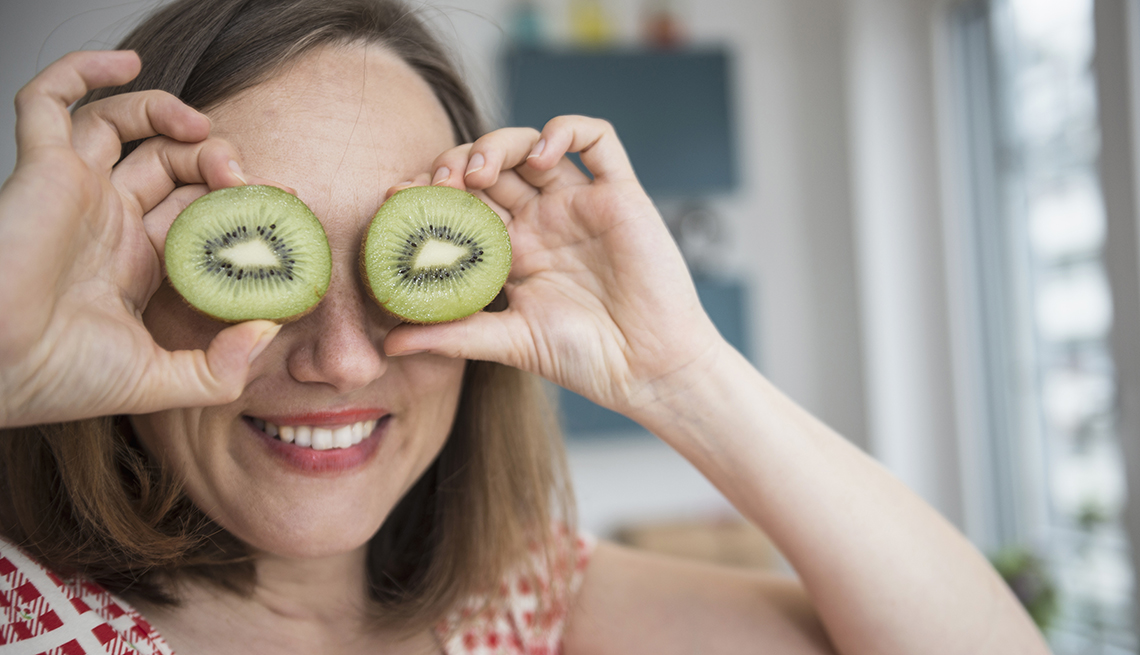Good eye health is vital to your overall health, and one of the best ways to achieve this is through proper nutrition. The eye is a complex organ that requires numerous nutrients to function well and to prevent common eye problems such as dry eyes and vision loss, among others and age-related eye conditions. Including the most important vitamins in your diet will make your eyes keep on becoming sharper, simultaneously making your eyes protected for years to come.
Why Do Vitamins Matter for Your Eyes?
Like all other body parts, eyes also have requirements for specific quantities of vitamins and minerals to work their best. These nutrients protect the eye structures from free radicals, ultraviolet rays, and other environmental stressors. In the absence of this basic vitamin intake, your eyes remain susceptible to the vulnerability of suffering from macular degeneration, cataracts, or other eye-related vision disorders.
Here Are Major Vitamins To Keep Your Eyes Healthy
- Vitamin A
It is the most commonly known of those vitamins that keep one’s eyes in a fit state. It promotes clear vision in dim light. It helps the retina function properly and prevent night blindness. It is also used to preserve the moisture and clarity of the cornea, which is the outer layer of the eye, preventing dryness and infection of this area.
Best Sources of Vitamin A
- Carrots
- Sweet potatoes
- Spinach
- Liver
- Fish oils
- Vitamin C
It is an antioxidant that guards the eyes against oxidative damage by free radicals and harmful UV rays. Its protective effects also strengthen the blood vessel walls of your eyes, particularly the capillaries in the retina, which reduce the chances of cataracts and macular degeneration. Vitamin C can also play a part in the overall health of your skin, which helps reduce puffiness around the eyes.
Best Sources of Vitamin C
- Oranges
- Strawberries
- Bell peppers
- Broccoli
- Kiwi
You probably already know, but vitamin C deficiency may also contribute to puffiness and dark circles under your eyes. At least improving the levels of vitamin C consumption, along with proper hydration and sleep, might help you get rid of your problems.
If you have undereye bags, learn what causes baggy eyes to address this condition in the right way.
- Vitamin E
Another high-potency antioxidant is Vitamin E, which protects the eyes from oxidative stress and age-related damage. It is demonstrated to retard the development of cataracts and macular degeneration, for it matures free radicals in the tissues surrounding the eye. Vitamin E combines well with other antioxidants like Vitamin C and beta-carotene, making maximum protection for your eyes.
Good sources of vitamin E
- Almonds
- Sunflower seeds
- Avocados
- Spinach
- Olive oil
- Vitamin B Complex
Vitamin B complex, including B6, B9 (folic acid), and B12, significantly helps in combating inflammation and preventing age-related ocular problems. These vitamins help in keeping the level of homocysteine, an amino acid that also causes inflammation and leads to macular degeneration if its level is not controlled. Furthermore, Vitamin B2 (riboflavin) assists in preventing cataracts and ensures the overall health of the eyes.
Source of Vitamin B Complex
- Egg
- Chicken
- Fish
- Greens, leaves
- Whole grains
- Lutein and Zeaxanthin
Although technically not vitamins, lutein and zeaxanthin are an extremely powerful group of antioxidants referred to as carotenoids, which are excellent for the eyes. These nutrients are richly concentrated in the retina, providing the eyes with a shield against oxidative stress and damaging effects from blue light exposure. Lutein and zeaxanthin have been proven to inhibit the development of cataracts and age-related macular degeneration.
Best Sources of Lutein and Zeaxanthin
- Kale
- Spinach
- Corn
- Peas
- Broccoli
To reduce your eye fatigue, get yourself the best LED eye patches online to block UV rays and protect your under eye skin.
- Zinc
Another important mineral element used in transporting Vitamin A from the liver to the retina, where melanin may be formed, is zinc. Melanin is a protective pigment of the eyes. Poor night vision, cataracts, and macular degeneration have been associated with zinc deficiency in humans. Thus, maintaining zinc in proper amounts will save your vision well into old age.
Sources with the Highest Amounts of Zinc
- Oysters
- Beef
- Pumpkin seeds
- Lentils
- Chickpeas
Final Thoughts On Vitamins For Eye Health
Your eyes are extremely sensitive and need a variety of vitamins and minerals to stay healthy and work well. Foods fortified with Vitamin A, C, E, and B-complex, along with antioxidants lutein and zeaxanthin, will protect your eyes from macular degeneration, cataracts, and even dry eyes. Whether it is through diet or supplements, getting enough of these essential nutrients is probably one of the best protections you can have to maintain good vision throughout your life.








